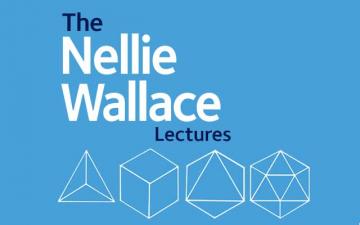Tuesday 10th May 2022, 3:30-5:00pm, Lecture Room, Radcliffe Humanities
Last Night in Suburbia
To grasp the politics of the Republic we need to clear away unhelpful accretions from its use and abuse over past centuries. It is neither Utopian nor idealistic; it is not the story of a town called Kallipolis; it is not a fantasy about 'philosopher-kings'. It is something far more abstract: an argument for the permanent possibility of justice both in the human psyche and in a political community.
Tuesday 17th May 2022, 3:30-5:00pm, Lecture Room, Radcliffe Humanities
Political Immoralism
Plato takes the central problem of politics to be greed: the Republic undertakes to refute the theoretical standpoint which makes that problem insoluble. According to this political immoralism, politics is essentially a competition for zero-sum goods, the language of justice necessarily a mask for manipulation and domination. Plato's concern in the Republic is to articulate and argue for the alternative view that there can be an art of politics: a kind of practical reason aimed at the common good.
Tuesday 24th May 2022, 3:30-5:00pm, Lecture Room, Radcliffe Humanities
Human Nature: A User's Guide
On Plato's view a theory of politics must start from a theory of human nature. The features of human psychology which shape our political problems are a triad of kinds of desire: reason, aggression, and irrational appetite. Plato uses this account of the psyche to explain justice as a distributive principle: what it distributes first and foremost is kinds of labour. A just city will be one in which human nature finds proper expression in the work we do: it will also be a 'naturally happy' one.
Tuesday 31st May 2022, 3:30-5:00pm, Lecture Room, Radcliffe Humanities
Ideology, Solidarity, and Noble Lies
A political theory must also be a theory of culture, and the relation between culture and politics occupies Books II-III and VIII-X of the Republic. We will focus on a microcosm of this argument, the famous 'noble lie': the thesis that a particular kind of false self-conception must be part of the ideology of any just society.
Tuesday 7th June 2022, 3:30-5:00pm, Lecture Room, Radcliffe Humanities
Guardians
Plato’s answer to the political immoralist is to propose Guardians: a political class committed to the rational pursuit of the common good. The key precondition for such a disinterested and expert politics is the absolute separation of wealth and the profit motive from political power. The thesis that Guardians must be philosophers is Plato's way of making a complex set of claims about the importance of truth, rationality, and objectivity in politics and government.
Tuesday 14th June 2022, 3:30-5:00pm, Ryle Room, Radcliffe Humanities
The Faces of Injustice
Plato's political theory is most fully displayed in his typology of unjust regimes in Republic VIII-IX. Its dominant feature is the interplay between the structure of a state and the psychology of its political class. Plato's interweaving of psychology, sociology, and political history expresses not only his distinctive 'culture-first' theory of politics, but his conviction that the psychology of the individual cannot be fully understood apart from his society, or vice versa.






